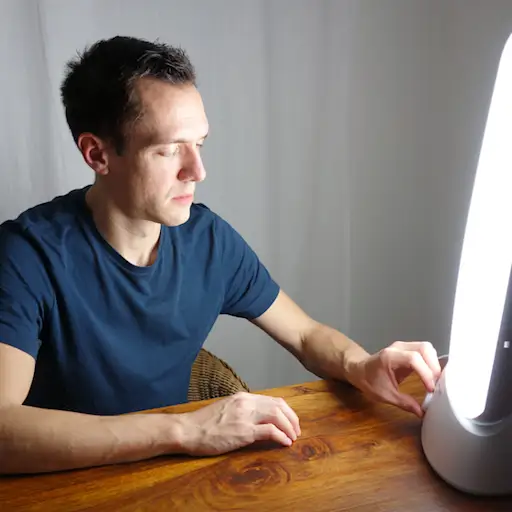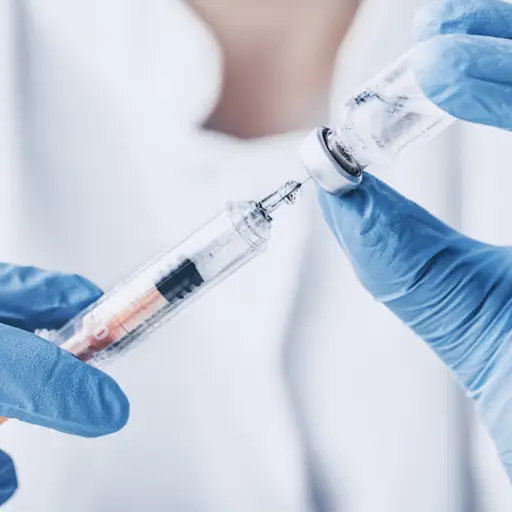How Long Does It Take to Get Rid of Psoriasis
Psoriasis: How Long Will It Take to Feel Better?

Psoriasis treatments can range from lifestyle modifications to injectable biologics. Each treatment will have an approximated time to see results. Read ahead to learn about some of the different treatment options and when you might begin to feel better.

iStock
Corticosteroid Cream
Corticosteroid cream is considered a topical treatment, meaning it is applied directly to the skin. It can be purchased over the counter or by prescription. You can begin to feel better immediately after applying the cream depending on the severity of your psoriasis and the strength of the cream.

iStock
Retinoid Cream
A retinoid is a synthetic form of vitamin A. The retinoid applied to the skin to treat psoriasis is called tazarotene. It works by slowing down rapidly growing skin cells. While you could see some improvement within a week, treatment results of the medication are based on trials that lasted for 12 weeks according to the American Academy of Dermatology Association.

iStock
Salicylic Acid
Salicylic acid is classified as a keratolytic, or peeling agent according to the National Psoriasis Foundation. It works by causing the outer layer of skin to shed. For psoriasis, it can help to soften and remove psoriasis scales. Salicylic acid is often combined with other topical therapies, such as corticosteroids so you may begin to feel better immediately.

iStock
Ultraviolet B Light Therapy
Phototherapy, or light therapy, involves exposing the skin to ultraviolet light on a regular basis. Treatments can be done at a doctor's office or at home with a special light unit. Present in natural sunlight, ultraviolet B (UVB) is an effective treatment for psoriasis according to the National Psoriasis Foundation. During UVB treatment, your psoriasis may worsen temporarily before improving. It can take several weeks to see overall improvement.

iStock
Cyclosporine
Known as a systemic agent, cyclosporine was first used to suppress immune systems before organ transplants. The American Academy of Dermatology Association refers to cyclosporine as a rapidly acting systemic agent for the treatment of psoriasis. In at least one study, 65 percent of individuals achieved clear or almost clear skin after eight weeks.

iStock
Methotrexate
Also known as a systemic, methotrexate has been used to treat other autoimmune disorders. It works by binding to and inhibiting the enzyme involved in the rapid growth of skin cells. While individuals taking methotrexate must be carefully monitored for liver function abnormalities, it has been used for over 40 years and has an acceptable safety record in at least one long term study. Most individuals see less psoriasis in four to six weeks according to the American Academy of Dermatology Association.

iStock
Apremilast
Apremilast (Otezla) is one of the newest systemic drugs to be approved to treat psoriasis. It is usually prescribed as a pill twice a day. In two clinical trials, after 16 weeks participants saw reduced severity in their moderate to severe plaque psoriasis. The benefits of the drug were sustained over 52 weeks of treatment. Apremilast also improved signs and symptoms of psoriatic arthritis in the clinical trials.

iStock
Etanercept
Etanercept (Enbrel) is a biologic that has been approved to treat various inflammatory diseases including psoriasis. Etanercept is received through an injection. In at least one trial, subjects began responding within two weeks, and then saw statistically significant differences in the psoriasis area and severity at 12 weeks of treatment.

iStock
Adalimumab
Another drug that is relatively new to the market is adalimumab (Humira). Adalimumab is an injectable biologic used to treat psoriasis and other conditions by blocking production of an inflammation-causing protein. In at least one study published in the Journal of the American Academy of Dermatology, 71 percent of study participants saw at least a 75 percent improvement in their psoriasis after 16 weeks of treatment.

Different factors affect treatment effectiveness
We are all different and not every product will work for every person. Treatment times can depend on several factors including the severity of your psoriasis and your immune system. It is important that you follow the directions from your doctor even if your symptoms begin to immediately improve. The National Psoriasis Foundation recommends that you give a new treatment at least three months before evaluating the results.

Meet Our Writer
Tracy Davenport, Ph.D.
Davenport is the founder of Tracyshealthyliving.com. Using the latest scientific research, she helps people live their healthiest lives via one-on-one coaching, corporate talks, and sharing the more than 1,000 health-related articles she's authored.
How Long Does It Take to Get Rid of Psoriasis
Source: https://www.healthcentral.com/slideshow/psoriasis-how-long-will-it-take-to-feel-better